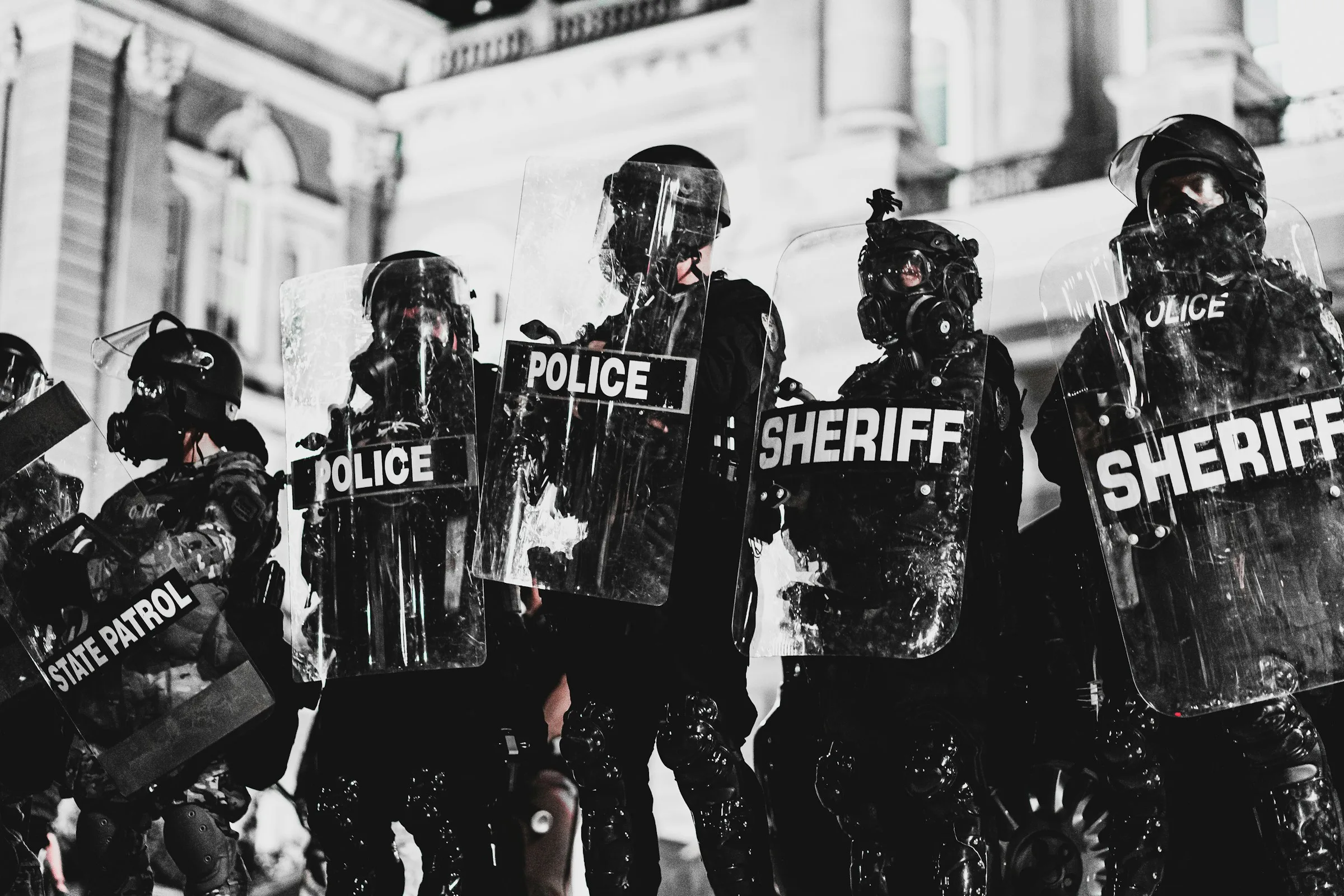Newsletter
Police Blame Accountability for Low Recruitment. But It’s Their Only Hope.
Studies show “negative public perceptions” of police contribute to low recruitment. Stripping away police oversight will only lead to more bad press for cops.

Public confidence in policing is at an all-time low. Less than half of Americans report trusting the police, a number that has not rebounded since the 2020 murder of George Floyd and the calls for accountability that followed. It is not surprising this distrust has made policing a less attractive profession. Law enforcement leaders have consistently cited a lack of community confidence and negative public narratives as one of the biggest barriers to recruitment.
But the truth is that police departments’ recruiting challenges are not a public safety crisis, since money for new officers could instead go towards programs that increase public safety without the risk of violence, inequality, racism, or civil rights violations. Unfortunately, the majority of American politicians, from the president to “progressive” mayors, are stuck in the erroneous mindset that we need more officers to protect the public.
This perspective on public safety is a problem in and of itself. But the policies elected officials are pursuing to boost arbitrary staffing levels are even more concerning: Law enforcement leaders and their advocates are weaponizing this “crisis” to attack accountability measures and justify hiring unqualified officers.
Earlier this year, Louisiana Gov. Jeff Landry opened his legislature’s disastrous “special crime session” touting HB 2, a bill that gives police near absolute immunity when they violate people’s rights. Landry said the bill, which passed, was necessary to “help recruit the best and brightest into law enforcement.” In Florida, proponents of HB 601, which bans civilian review boards, claimed oversight panels can be a disincentive for people to work in law enforcement. On the West Coast, the Washington Association of Sheriffs and Police Chiefs employed a similar argument when opposing HB 1445, a bill that would expand Washington State’s ability to investigate police departments. The bill’s opponents insisted that increased oversight would make recruiting and retaining police officers more difficult.
For all of the talk that accountability creates staffing shortages, there is no evidence to back it up. In surveys, people do not say accountability measures discourage them from starting or continuing a career in policing. “Negative public perceptions and media portrayals of police,” however, are cited as a common deterrent.
These negative perceptions stem from real failures on the part of law enforcement to own up to, and learn from, instances of misconduct and abuse. In virtually every high-profile incident of police violence, departments have been caught lying about what happened, hiding information from the public, and protecting the officers involved.
When Tyré Nichols was murdered in 2023, the Memphis Police Department lied to his grieving mother about the circumstances of his death and released a misleading public statement that was later contradicted by video footage. When Ronald Greene died after being brutally assaulted by Louisiana State Police troopers, the agency engaged in a coordinated effort to hide evidence. When a pregnant Ta’Kiya Young was killed by Blendon Township police in Ohio after she allegedly shoplifted, the police department insisted that the officers were the victims.
Horrific killings like these erode community trust. But it is the lack of honesty, transparency, and accountability following these acts of brutality that affirms the public’s worst assumptions. Creating even more protections for officers will only lower the public’s perception of police and compound recruiting challenges.
While we unequivocally do not need more police, eliminating accountability measures is not the solution to making policing a more attractive profession. Instead, elected officials and law enforcement leaders should prioritize policies that ensure maximum transparency and meaningful consequences when an officer has engaged in misconduct.
Lauren Bonds is the executive director of the National Police Accountability Project.

ICYMI—From The Appeal
At least 2,900 people have been arrested at pro-Palestinian campus protests in the last few weeks. The Appeal has tracked each arrest and contacted 117 prosecuting agencies to find out how each office will respond.
Three incarcerated moms opened up about how they each experience Mother’s Day behind bars. Kwaneta Harris helps mentor younger women on the inside. Marissa Leanne Potts grapples with the loss of her daughter. And Lanae Tipton longs to be reunited with her child once more.
In The News
A large class-action lawsuit alleges that a slew of governmental agencies and companies, including affiliates of Hyundai, Budweiser, McDonald’s, KFC, and Wendy’s, conspired to keep Black people incarcerated to profit from cheap prison labor. [Josh Eidelson / Bloomberg]
Hundreds of American jails have replaced in-person visits with video calls. The companies that handle videoconferencing, Securus and GTL, typically charge for the calls and give commissions back to local governments. [Sarah Stillman / The New Yorker]
A federal lawsuit alleges an NYPD officer guarding New York City Mayor Eric Adams’s Brooklyn home shot a man from behind. The suit says the victim, Shahid Woodstock, was trying to enter his own apartment. [Matt Katz / Gothamist]
While many Americans associate book bans with totalitarianism or Nazi Germany, U.S. prisons have a rich history of censoring material. [Antoine Davis & Kevin Light-Roth / The Guardian]
A Federal Bureau of Prisons psychologist is suing the agency after she was targeted by a hostile, derogatory meme page run by a prison supervisor at FCC Lompoc on California’s Central Coast. [Shawn Musgrave / The Intercept]
